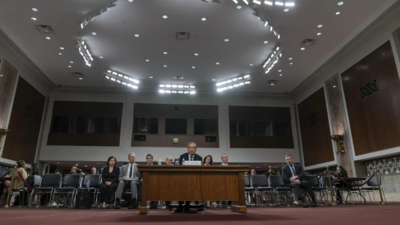Senate Republicans Advance Trump’s Tax Cut Agenda and Raise Debt Ceiling

In a significant move, Senate Republicans have made substantial progress towards implementing President Donald Trump's vision for tax cuts and addressing the looming debt ceiling crisis. Early Saturday morning, the Senate cast a decisive 51-48 vote, passing a crucial budget resolution after a lengthy overnight session filled with numerous amendments and debates.
This budget resolution is pivotal as it provides congressional Republicans the leeway to draft legislation aimed at extending Trump’s tax cuts for individuals and closely held businesses, which are currently set to expire at the end of 2025. The passage of this measure is expected to inject a degree of certainty into financial markets, which have been unsettled by the President's recent tariff policies that have stirred trade tensions globally.
However, the path forward is not without its challenges. Two Republican senators, Susan Collins from Maine and Rand Paul from Kentucky, broke party lines to join all Democratic senators in opposing the budget resolution, highlighting the intra-party divisions that persist within the GOP. While the measure is being heralded by Republicans as a means to facilitate a new phase of tax cuts, there are ongoing disputes regarding spending cuts between the House and Senate Republican members that remain unresolved.
The budget resolution additionally allows for an impressive $1.5 trillion in new tax cuts projected over the next decade. It also includes a significant proposal to increase the federal borrowing limit by $5 trillion, a critical step to prevent the Treasury Department from hitting the debt ceiling this summer. This increase is essential for maintaining the federal government’s ability to meet its financial obligations and avoid a potential default, which could have dire consequences for the broader economy.
Republicans have characterized these tax cuts as part of a two-phase economic strategy following the tariffs imposed by the administration, with estimates suggesting a total of $5.3 trillion in tax reductions projected over a ten-year span in the Senate version, and $4.5 trillion in the House proposal. Supporters of the President assert that these tax reductions will not only invigorate the stock market but also create an environment in which businesses feel confident enough to invest and expand, potentially leading to job growth and economic stability.



























